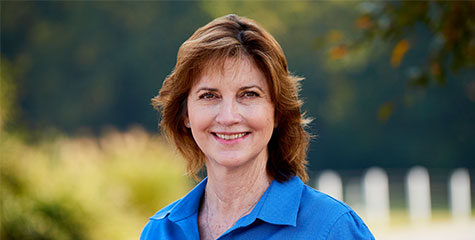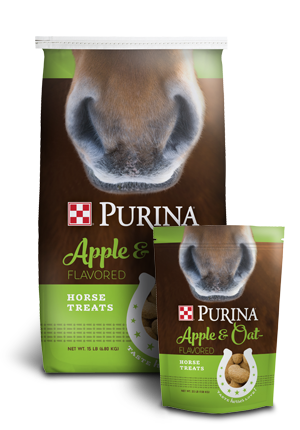
Winter Challenges and Caring for Senior Horses
Life Stage : Senior
Care : Seasonality
Care : Weight Management
Every season brings specific horse care challenges and winter is certainly no exception.
Weather changes and forage availability are usually the major issues of concern for horse owners during winter months. These challenges are amplified when caring for senior horses, due to compromised ability to chew and digest hay, reduced ability to handle inclement weather and metabolic changes that occur with advancing age.
Weather changes and forage availability are usually the major issues of concern for horse owners during winter months. These challenges are amplified when caring for senior horses, due to compromised ability to chew and digest hay, reduced ability to handle inclement weather and metabolic changes that occur with advancing age.
Respond to temperature changes
As the ambient temperatures get colder or when strong weather systems move through the area, horse owners take measures to keep horses warm and dry with proper shelter and blanketing when necessary. All warm-blooded animals have a critical temperature; the temperature below which an animal must produce additional heat to maintain normal body temperature. Mature horses in good flesh, where ribs cannot be seen, have a critical temperature around 30°F during early winter. After developing a winter coat and gaining 100 pounds, the critical temperature may be reduced to around 15°F. Young horses, old horses, horses in thinner condition and those that have been stabled and not developed a winter coat, may have a higher critical temperature around 40°F.
When wind or wet conditions are present, the critical temperatures will be higher as well. Horses require an estimated 15 to 20% more calories for each 10°F the ambient temperature falls below critical temperature. However, senior horses may need even greater increases in dietary intake to maintain normal body temperature.
Monitor hay quality and ingestion
Providing additional hay is a common way to increase calorie intake, helping horses stay warm and content. Access to more hay gives horses something to do while they are confined during bad weather. Also, digestion of fiber releases more internal heat than digestion of starch, sugars or fats, so hay serves as an internal furnace for the horse.
However, hay quality and availability during winter months can be a problem for horse owners. When hay is of lower quality, horses will voluntarily eat less of it, so they may not eat enough to meet increased energy demands during a long, cold winter. This is especially critical for aging horses with dental issues that compromise their ability to chew hay. Even when they can chew and eat hay, older horses often don’t digest hay as effectively as younger horses. In these situations, horses may have free-choice access to hay but still lose body condition.
Careful monitoring of body condition will indicate whether horses are taking in enough dietary energy to meet the demands of winter. Thick winter hair coats and blankets cover up horses’ ribs and topline so horse owners may not notice weight loss. It is important to routinely feel over the crest, withers, ribs, back and around the tail head to make sure horses aren’t losing body fat through the winter. When horses are eating all the hay they can eat and still losing weight, additional supplementation with more calorie-dense concentrate feeds is necessary to better support them through winter.
Hydration is not just a summer issue
When horses eat more hay, they should drink more water. Water consumption should be a minimum of 10 to 12 gallons per day for a 1000 lb. horse to support normal function of the digestive system and maintain adequate hydration. During weather changes and especially during extreme cold weather, horses often drink less water. When they eat more hay but drink less water they become at greater risk for impaction colic and reduced intake due to dehydration. To help encourage water intake, keep water sources clean, fresh and free from ice. A minimum water temperature of 45°F is a good goal for horses during harsh, cold weather.
Many owners have traditionally offered warm bran mashes to their horses during winter. Research would suggest that the benefit of these mashes is more related to increased water consumption and possibly a slight digestive upset from receiving a meal of bran that isn’t consistent with their normal daily diet. Another way to encourage water consumption is to add warm water to the horse’s normal feed ration along with a couple ounces of loose salt.
Hay shortages mean new horse feed considerations
The demand for hay is greatest during the winter months. This increased demand may result in shortages of good quality hay especially in late winter and early spring before new hay is harvested for the year. Often, quality hay becomes scarce or very expensive and lower quality hay may be more common. Even the best quality hay is very different forage from green pasture; being lower in protein, calories and vitamins; and this must be considered when feeding horses through the winter.
Horses who maintained good body condition through spring, summer and even early fall by eating good pasture and a mineral supplement may need additional feed supplementation during the winter. This is often most obvious with aging horses who may maintain good condition when grazing green pasture but then lose significant condition through the winter. Not only is this related to the quality of the forage and their ability to consume and digest hay, but research has shown that the systemic inflammation that occurs with aging increases through the winter. So winter for older horses is a trifecta of lower forage quality, increased energy demands of cold weather and metabolic challenges of aging.
Purina® Equine Senior®, is formulated with high-quality fiber that is easy to chew and digest and can replace hay or pasture in senior horse diets. It has been helping senior horses maintain better condition, even in winter, for over twenty years. When Purina® Equine Senior® is fed as directed to replace some or all of the hay, older horses with compromised dentition or digestion, are better able to maintain condition than when they’re fed hay or even hay with grain. And, Purina® Equine Senior® makes a great warm mash. Research has shown that Purina® Equine Senior® with ActivAge® technology included helped combat increasing inflammation and increased the aged horse’s immune response to the flu vaccine. This proprietary ActivAge® technology is also included in Purina® Senior Active® which is formulated to provide improved nutritional support for senior horses that can still adequately chew and digest hay. Winter certainly can be a challenging time for horse owners and horses, especially aging horses. Careful monitoring of hay quality and intake, water intake, and providing proper supplemental feed will insure everyone gets through winter in great shape and ready for warmer weather.
Greatness never ages. Learn more about Purina® Equine Senior® with ActivAge® prebiotic.
Greatness never ages. Learn more about Purina® Equine Senior® with ActivAge® prebiotic.





